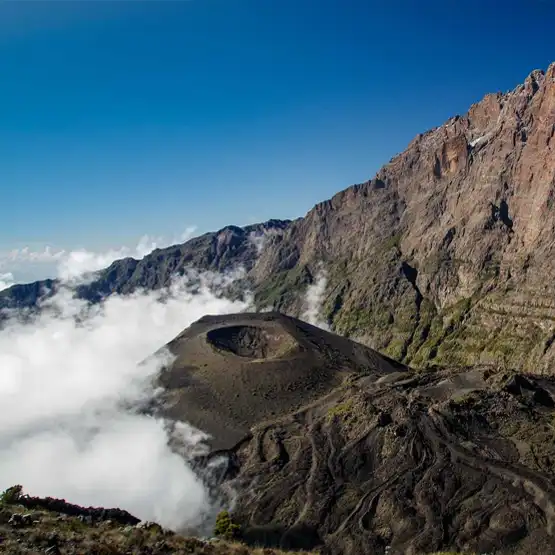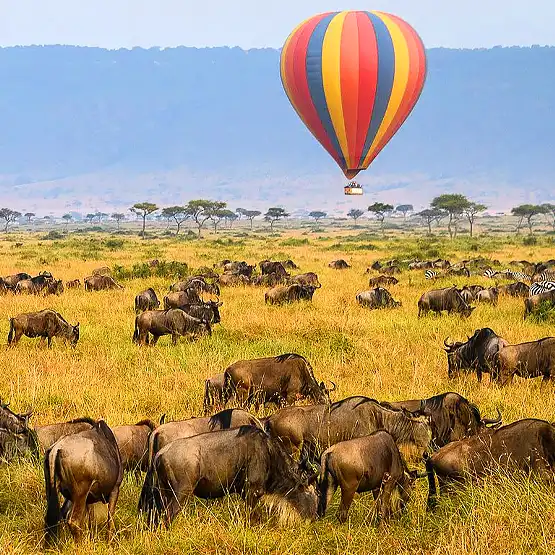When visiting Maasai villages, the choice of gifts can significantly impact your welcome and the villagers’ lives. A common misconception is that money is the ideal gift, but in many cases, practical items are far more appreciated. For example, simple school supplies like notebooks and pens can make a world of difference in the education of Maasai children.
Historically, the Maasai have relied on cattle for their livelihood and measure wealth in livestock. With this in mind, gifts related to their pastoral way of life are especially valued. Items such as solar lanterns and water purification tablets address critical needs and demonstrate a thoughtful understanding of their environment and lifestyle.
What Gifts Are Appropriate to Bring to Maasai Villages
When visiting a Maasai village, it’s important to choose gifts that align with their values and needs. Practical items such as school supplies can greatly assist children in their education. These include notebooks, pencils, and crayons, which are always in demand. According to the article, educational supplies can have a lasting impact. They help improve the learning experience for Maasai children.
Another thoughtful gift option is solar lanterns. Many Maasai villages lack access to electricity, making solar-powered items incredibly valuable. Solar lanterns provide light for reading and evening activities without the dangers of open flames. Additionally, they reduce costs for families who would otherwise buy kerosene. This practical gift promotes safety and better living conditions.
The Maasai are pastoralists, relying heavily on livestock for their livelihood. Therefore, veterinary supplies and tools for animal care make excellent gifts. Items like deworming tablets, livestock vaccines, and basic veterinary tools are highly appreciated. These gifts ensure the health of their animals and support their way of life. Consider bringing these if you’re looking to make a real difference.
Handmade crafts from your own culture can also be a unique gift. They offer a way to share your own traditions while honoring theirs. However, it’s crucial to respect the Maasai customs when choosing these items. Avoid items made from animal products, as it might conflict with their practices. Instead, focus on crafts that show thoughtfulness and mutual respect.
Understanding the Maasai Culture and Traditions
The Maasai people are well-known for their vibrant traditions and customs. They live in southern Kenya and northern Tanzania, where they continue a semi-nomadic lifestyle. Their community is deeply rooted in cattle herding, which plays a central role in their daily lives. The Maasai measure wealth by the number of cattle one owns. This livestock-centric culture is a key part of their identity.
Maasai traditions are rich with rituals and ceremonies that mark important life events. For instance, they have elaborate rites of passage for young men, known as “Emuratare,” or circumcision ceremonies. These rituals signify a boy’s transition to manhood and come with great community involvement. Dancing and singing are integral parts of these celebrations. They symbolize unity and shared cultural heritage.
Another important aspect of Maasai culture is their distinct attire. They are often seen wearing shukas, bright red and blue checked blankets. Beadwork is also a significant part of their dress, especially for women. The intricate bead designs have meanings related to age, marital status, and social standing. This clothing is not only practical but also a strong expression of their identity.
The Maasai’s deep connection to the land influences many of their customs. They rely on natural resources for food, medicine, and spiritual practices. Conservation of land and wildlife is essential to their way of life. This respect for nature is reflected in their sustainable practices. It shows their commitment to preserving their environment for future generations.
Essential Items that Make Meaningful Gifts
When looking for meaningful gifts for the Maasai, practical items that improve daily life are highly valued. School supplies, for example, help children continue their education. Items like pens, notebooks, and reusable water bottles are always needed. They can make a big difference in a child’s learning experience. Educational tools create lasting benefits for the entire community.
Health and hygiene items are also very appreciated due to their significant impact on well-being. Basic medical supplies like bandages, antiseptic wipes, and first aid kits are essential. Moreover, feminine hygiene products support women’s health and comfort. These items can be challenging to obtain in remote villages. Providing them can improve the overall quality of life.
Solar-powered devices are particularly useful in Maasai villages that lack access to electricity. Solar lanterns provide a reliable source of light, reducing the need for harmful kerosene lamps. Additionally, solar chargers for phones help communities stay connected. These sustainable solutions align with green energy efforts. They offer practical benefits while being environmentally friendly.
Bringing veterinary supplies can also be a thoughtful gift, given the Maasai’s dependence on livestock. Items such as deworming tablets, vitamins, and basic veterinary tools support animal health. Healthy livestock ensure food security and economic stability for Maasai families. This form of assistance directly supports their way of life. It demonstrates a deep understanding of their needs.
Gifts that Support Education and Learning
Supporting education in Maasai villages can have a lasting impact on the community. Books and educational materials are always in high demand. Children’s books, textbooks, and reference materials enrich the learning environment. These resources provide knowledge and inspiration to students. They also help teachers in delivering quality education.
Another vital contribution comes in the form of writing supplies. Items such as pens, pencils, and notebooks are fundamental to a student’s toolkit. Without these supplies, children may struggle to participate in class activities. Donating these tools helps foster a better learning experience. It ensures students have what they need to succeed.
Technological aids can also be beneficial in modernizing education in Maasai villages. Laptops and tablets loaded with educational software make learning more interactive and engaging. Even a single laptop can serve a whole classroom, providing access to vast online resources. Solar chargers help keep these devices functional in areas without reliable electricity. Such contributions open new horizons for students.
Basic school infrastructure is essential for a productive learning environment. Simple items like desks, chairs, and blackboards can transform a classroom. Comfortable seating and clean blackboards improve focus and engagement. Investing in infrastructure shows a commitment to long-term development. It creates a better space for both teaching and learning.
Contributing to educational programs and scholarships can make a significant difference as well. Financial support helps cover the costs of school fees, uniforms, and exam materials. Scholarships motivate students to achieve higher academic standards. They also relieve financial burdens on families. This support paves the way for future opportunities.
Extracurricular activities also play a crucial role in student development. Sports equipment, art supplies, and musical instruments enhance the learning experience beyond the classroom. These activities promote teamwork, creativity, and physical fitness. They also provide a well-rounded education. Encouraging extracurricular programs fosters a vibrant and active school community.
Respecting Maasai Values When Choosing Gifts
Respecting Maasai values is crucial when selecting gifts for their communities. The Maasai people have strong cultural norms and practices that must be honored. Avoid gifts that might conflict with their traditions or beliefs. Understanding what is culturally appropriate shows respect. This consideration strengthens relationships and trust.
Avoid items made from animal products not part of their traditional use. The Maasai have a deep connection to their livestock, and using unfamiliar animal products might be offensive. Stick to gifts that align with their environmental ethos. This includes items that support sustainability and community well-being. Thoughtfulness in your choices demonstrates cultural sensitivity.
Handmade crafts from your culture can be appreciated if chosen carefully. These items should be meaningful and reflect mutual respect. It’s a way to share cultural exchange while honoring their traditions. However, ensure these gifts do not impose your beliefs or practices on them. Aim for symbolic gifts that signify friendship and respect.
Practical items that address immediate needs tend to be well-received. Essential supplies, such as hygiene products or school materials, are versatile and beneficial. These gifts provide tangible support and align with community values. Another option is simple clothing items, like shawls or blankets. Such gifts offer comfort without challenging cultural norms.
Personal interactions can also be a valuable gift. Offering your time and skills to the Maasai can be more meaningful than physical items. Teaching, sharing knowledge, or participating in community activities helps build connections. This approach respects their way of life while contributing positively. It emphasizes the importance of shared experiences over material possessions.
Kilisa Tours’ Recommendations for Visitors
Kilisa Tours emphasizes respecting local customs when visiting Maasai villages. They advise against bringing gifts that might disrupt cultural practices. Instead, opt for items that provide practical benefits and can be shared within the community. This approach ensures that your contributions are meaningful and appreciated. It also reinforces positive interactions between visitors and villagers.
One key recommendation is to consider educational materials. School supplies such as books, pencils, and notebooks are always in demand. Kilisa Tours highlights the importance of supporting education as a means of empowering the community. These items help create a brighter future for Maasai children. They also foster a deeper connection with visitors who prioritize learning.
Health and hygiene products are another suggestion from Kilisa Tours. Items like soap, sanitary pads, and toothbrushes are essential yet often scarce. Providing these supplies helps improve overall health and well-being. The tour company stresses that these gifts should be chosen with care, avoiding anything that might be unfamiliar or unsuitable. Simple, everyday items usually make the best gifts.
Kilisa Tours also recommends solar-powered items, especially for villages without electricity. Solar lanterns and chargers offer vital utilities in places with limited access to power. These gifts are both practical and environmentally friendly. They support sustainable living and enhance quality of life. Visitors who bring such thoughtful gifts leave a lasting, positive impact.
Lastly, Kilisa Tours encourages visitors to engage with the Maasai through cultural exchanges. Sharing stories, teaching skills, or participating in local activities can be incredibly rewarding. These interactions foster mutual respect and understanding. They highlight the value of personal connections over material gifts. Kilisa Tours underscores the importance of being open-hearted and respectful during your visit.






